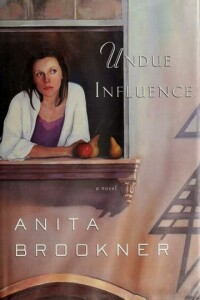
This third bookshop book, like the last one, starts with the death of the protagonist’s mother. However, no one is throwing Claire out of the London flat—the only home she’s known—and she’s already working in a bookshop. Still, her father having died some years previously, she’s now alone in the world.
Claire is a curiously passive person, though she doesn’t see herself that way. The bookshop where she works is owned by two elderly sisters, Muriel and Hester, but Claire doesn’t sell books. She’s in the basement transcribing the writings of the sisters’ late father for possible publication. Between the sermons and the rather dry articles, she finds herself pleasantly immersed in a more predictable past.
She has one friend, Wiggy, whom she met at the National Gallery and sees occasionally. Although she enjoys her company, Claire thinks Wiggy is too passive. Mistress to a married man, Wiggy almost never leaves her flat in case he drops by. Still, Claire turns to Wiggy now to compensate in part for the loss of her mother’s company.
Before her mother died, Claire used to go on vacations to foreign cathedral towns where she’d dutifully see the sites so she could describe them to her mother. She also indulged in brief affairs that she did not tell her mother about.
It doesn’t seem like much of a life, but Claire’s imagination fills in the gaps. Convinced that she perceives the secret lives of people she’s barely met, she’s often tempted to give them advice or set them straight.
Thus when a quiet good-looking man ventures into the bookshop and is sent by Hester to the basement to find a particular book, Claire pursues an acquaintance with him. She believes she is helping him come out of his shell, but is she influencing him or the other way around?
She’s vulnerable, having been unmoored by her mother’s death, though she doesn’t recognise it. I have seen myself how a death can leave you bereft, not just of the loved one but of the routines that filled your days. Brookner captures that weightlessness, that waiting.
Brookner’s style, with its leisurely pace, subtle shifts, and extensive use of exposition may turn off some modern readers. Claire, as the first-person narrator, tells us this story, with only a few dramatic scenes, whereas we have become used to stories that are almost entirely scenes tied together with a little exposition. But I love the change of pace and the chance to settle fully into the mind of another person.
Like other Brookner novels I’ve read and loved, this story makes me think of the muffled sound of falling snow, so quiet you barely notice until you look out and see how the world has changed.
Have you read a novel by Anita Brookner? Do you have a favorite?